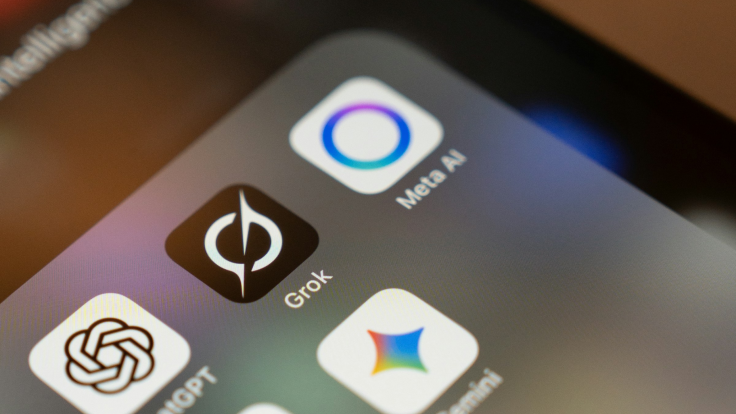Jimmy Wales Warns Elon Musk's 'Grokipedia' Will Make 'Massive Errors' Amid Plagiarism Claims
Elon Musk's Grokipedia is here, but critics slam it for AI errors and 'copy-paste' plagiarism from Wikipedia.

In the grand pursuit of 'truth, the whole truth, and nothing but the truth,' Elon Musk has unveiled his own version of Wikipedia. But just days after its launch, this new AI-driven encyclopaedia is facing a tidal wave of criticism, with users spotting blatant plagiarism and experts, including Wikipedia's own co-founder, warning of massive errors.
The somewhat unoriginally named 'Grokipedia' has been touted as a rival to the world's most famous online encyclopaedia and already houses more than 885,000 articles. But its launch has been anything but smooth.

Wikipedia Founder's Stark Warning on Elon Musk's 'Grokipedia'
Wikipedia co-founder Jimmy Wales has voiced significant concern about the core concept of using large language models (LLMs) to create a trusted, factual resource.
'The LLMs he is using to write it are going to make massive errors. We know ChatGPT and all the other LLMs are not good enough to write Wiki entries. I'm not optimistic he will create anything very useful right now,' Wales warned during the CNBC Technology Executive Council Summit on Tuesday.
This criticism strikes at the heart of the project. Grokipedia has been a project under xAI for some time and reportedly uses the same core model as the Grok chatbot. Musk himself has been a vocal critic of Wikipedia, accusing it of being filled with 'propaganda' and calling for people to stop donating to the non-profit foundation that runs it. Grokipedia's own entry on Wikipedia even accuses the site of having 'systemic ideological biases — particularly a left-leaning slant in coverage of political figures and topics.'

'Copy-Paste Chaos' Plagues Elon Musk's 'Grokipedia'
While Wikipedia is famously written and edited by human volunteers, it remains unclear how Grokipedia's articles are actually put together. The San Francisco-based Wikimedia Foundation said in a statement Tuesday that it is 'still in the process of understanding how Grokipedia works'.
Reports suggest the site is powered by the same xAI model that underpins Musk's Grok chatbot, but many articles are seemingly adapted directly from Wikipedia. Netizens and social media users were quick to flag major inconsistencies, including blatant 'copying' of content and the 'reframing' of historical events.
Worse still, many Grokipedia pages were found to be completely devoid of citations and sources. X user Dave Jones posted a detailed critique: 'Grokipedia rips off directly from Wikipedia, word for word, formatting, structure, the whole thing...There is no way to know if Grok has changed something subtle, or it's 100% verbatim. There is no message to that effect. Saying 'fact checked by Grok two days ago' is the encyclopedic equivalent of 'trust me bro.''
Jones noted that the site's own footer message: 'The content is adapted from Wikipedia,' is dangerously vague. 'HOW 'adapted' is it? Is it a 100% copy? 99%, 90%? What's changed and how? Grokipedia also ends up as a mix of copying Wikipedia and completely rewriting everything. It's like a box of chocolates, you never know what you're going to get,' he wrote.

The Uncertain Future of Elon Musk's 'Grokipedia'
The new platform features a minimalist appearance, with little beyond a search bar. While it claims over 885,000 articles, this pales in comparison to Wikipedia's more than 7 million articles in English alone.
Users quickly contrasted how the two encyclopaedias covered the same events, noting drastic changes in framing and context for controversial topics. Another user pointed out the significant difference between the Grokipedia and Wikipedia entries on George Floyd, highlighting the ideological battleground Musk seems intent on entering.
For now, Grokipedia appears to be caught between its promise of absolute truth and the messy reality of AI-driven content generation, which, as critics point out, is prone to 'hallucinating' facts and replicating the very biases it claims to correct.

Elon Musk's 'Grokipedia' launched with the ambitious promise of delivering absolute truth, but its debut reveals a platform struggling with the fundamental flaws of AI-driven content. Caught between its ideological goals and the messy reality of 'copy-paste chaos,' 'hallucinating' facts, and blatant plagiarism, its future as a reliable encyclopaedia remains highly uncertain.
The real test is yet to come: As users continue to compare Grokipedia's entries against human-vetted sources, it remains to be seen if it can evolve beyond its 'trust me bro' sourcing into a genuinely useful tool, or if it will, as critics warn, remain a 'box of chocolates' where you 'never know what you're going to get.'
© Copyright IBTimes 2025. All rights reserved.





















